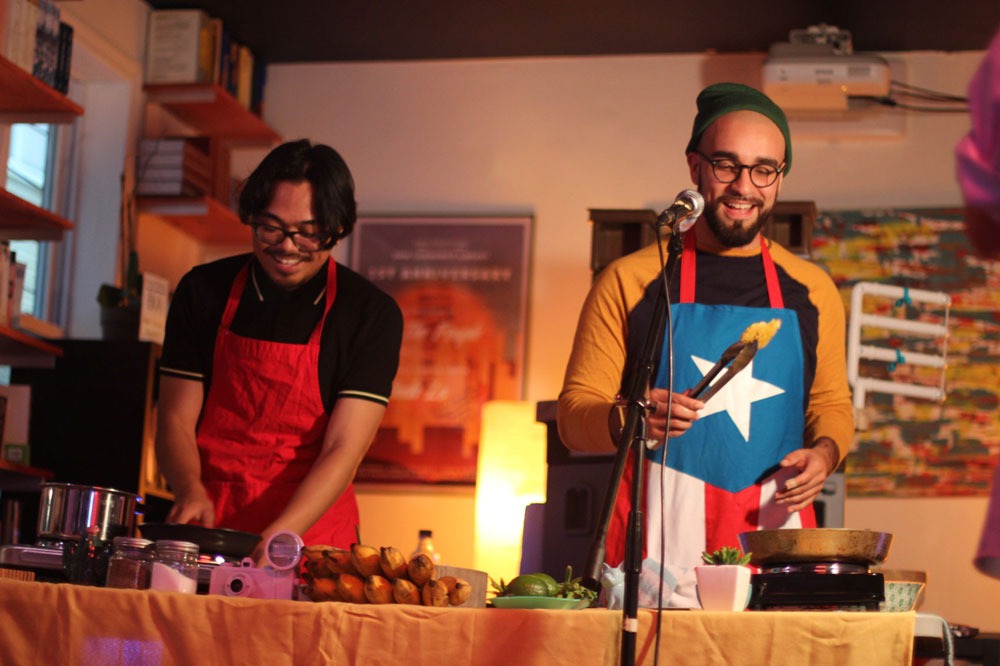
December 2, 2020; WBUR
A Boston-area regranting initiative might provide one blueprint for future arts funding, if not for equitable grantmaking more generally.
The city of Boston has partnered with the Massachusetts College of Art and Design (MassArt) to launch Radical Imagination for Racial Justice (RIRJ), a three-year pilot program that redistributes $250,000 in grant funding from the Surdna Foundation to an inaugural cohort of 16 ALAANA+ or BIPOC-identifying artists and art collectives. It is led by Kara Elliott-Ortega, chief of arts and culture for the city of Boston, along with MassArt program leaders Ceci Méndez-Ortiz and Chandra Méndez-Ortiz.
“Artists will receive funding and support to imagine what racial justice looks like in partnership with their communities,” wrote Elliott-Ortega. “So thankful to have brought this to fruition over the course of the last [two] years with my MassArt partners and funder partners at the Surdna Foundation.”
The program is notable for its intentional, community-centric approach to grantmaking. Community members, such as local artists and cultural workers, helped shape the program’s application, itself intended to uplift equitable processes and expectations for applicants that included the use of at least 20 percent of funds on well-being and needs like rent. A youth-led street team promoted the program, which is open to working creatives as young as 14. Everyone involved was paid for their participation.
Over 300 individuals applied for the program’s first year-long cohort. Six $40,000 awards were granted to Adobo-Fish-Sauce, Fabiola Méndez, Husain Rizvi, Lily Xie, Nia Holley, and UnBound Bodies Collective. An additional ten $1,000 awards went to Christine Alcindor, Mila Fields-Zayas, Silvina Ibañez, Mariona Lloreta, Nate McLean-Nichols, S, Micah x Ireon, Leonard Tshitenge, Aggrey Twinomugisha, and Irischa Valentin.
The projects range from altar installations celebrating Black trans femmes and gender non-binary black folx by UnBound Bodies Collective to a multimedia exploration of race by Fabiola Méndez. Cohort participants will meet throughout 2021 to discuss their projects and examine racial justice in Boston. Orientation begins this month, and a closing public ceremony is planned for December 2021.
Sign up for our free newsletters
Subscribe to NPQ's newsletters to have our top stories delivered directly to your inbox.
By signing up, you agree to our privacy policy and terms of use, and to receive messages from NPQ and our partners.
The program’s funding is part of a larger $1.2 million grant from Surdna Foundation as part of Thriving Cultures, a nationwide initiative using the RIRJ framework to create racially just systems through the works of artists of color. Boston joins 10 other regranting partners but is the only grantee utilizing a municipal-higher education relationship to achieve its goals. It is also the only grantee heavily emphasizing youth involvement in both program development and project participation.
Mayor Marty Walsh calls the program a “huge moment” for Boston as it pursues citywide goals of equity. “Boston artists have improved the city’s culture and vibrancy firsthand, and I’m looking forward to seeing how they use their art to creatively imagine a better future for our city,” he says.
NPQ has extensively covered COVID-19’s effects on the arts and working creatives. In Massachusetts alone, the Mass Cultural Council reports cultural organizations have lost almost $484 million in revenue since the onset of the pandemic; working creatives are estimated to have lost over $20 million in personal income.
While the RIRJ program can be lauded for funding the arts in a time when funding is in short supply—whether intentionally or otherwise—it’s the intense focus on community, and more specifically communities of color, that elevate its efforts beyond those of conventional philanthropic norms.
As UnBound Bodies Collective notes: “We also could not have imagined that during this time of illness and uncertainty, that the City of Boston and MassArt would intentionally design a grant that counters many philanthropic normativities, addresses racial inequities, supports experimental/imaginative world-building, and encourages applicants to include care and wellbeing in their creative proposal.”
Indeed, RIRJ’s model acknowledges and addresses numerous criticisms of both nonprofit and philanthropic work. Equitable access to the grant application process; unfettered engagement to sector resources and technical assistance; the omission of hierarchical organizational structures dependent on roles like program officers; and uplifting marginalized community voices all contribute to emerging solutions to longstanding “best” practices now deemed problematic. Further, the project illustrates successful cross-sector collaboration between municipal governments and other institutional organizations.
RIRJ will provide an interesting case study for regranting models as well as ALAANA+/BIPOC-focused, community-centric approaches to grantmaking. As Elliott-Ortega tells WBUR, “It’s definitely one of my hopes that this can be a demonstration for grant-making in philanthropy.”—Drew Adams












